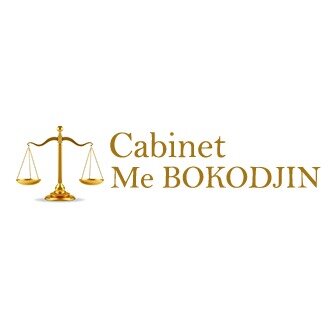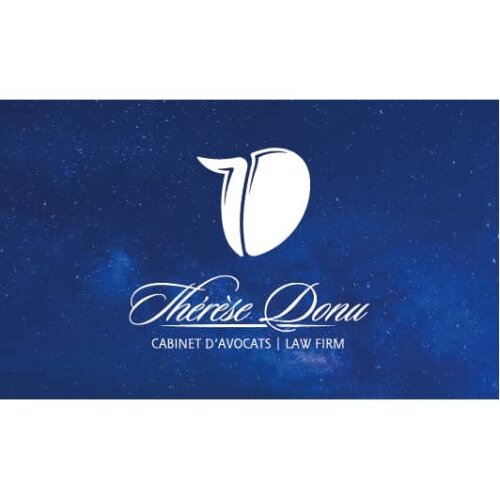Best Mining Law Lawyers in Togo
Share your needs with us, get contacted by law firms.
Free. Takes 2 min.
Or refine your search by selecting a city:
List of the best lawyers in Togo
About Mining Law in Togo
Mining Law in Togo governs the exploration, extraction, and management of mineral resources within the country. Predominantly regulated by the Mining Code and related regulations, it ensures that all mining activities are conducted responsibly, balancing economic growth with environmental protection and community rights. The law outlines licensing, environmental requirements, royalty payments, local content obligations, and disputes resolution mechanisms. Togo is known for its rich deposits of phosphates, limestone, iron ore, and other minerals, and its mining sector is an important contributor to the national economy. Understanding the legal framework is crucial for both domestic and foreign investors, miners, landowners, and communities impacted by mining activities.
Why You May Need a Lawyer
Engaging in mining activities or dealing with the impacts of mining in Togo often requires knowledgeable legal guidance. Some common situations where a mining law specialist can help include:
- Securing and renewing exploration or exploitation licenses
- Negotiating joint venture or partnership agreements
- Understanding and fulfilling environmental and community obligations
- Resolving land ownership and usage disputes
- Handling contractual disputes with subcontractors or suppliers
- Complying with Togolese tax and royalty obligations
- Navigating local content and employment requirements
- Dealing with government inspections or enforcement actions
- Ensuring compliance with health and safety standards
- Filing administrative appeals or participating in legal proceedings
Legal expertise can help avoid costly mistakes, expedite processes, and protect your interests.
Local Laws Overview
Mining in Togo is primarily regulated by the Mining Code (Law No. 96-004/PR dated February 26, 1996, as amended), which sets the legal framework for all mining operations. Key aspects include:
- Licensing: Various permits and licenses are required for exploration, research, development, and commercial extraction. These licenses specify the area, duration, and obligations of the holder.
- Ownership: The Togolese state owns all mineral resources in the ground. Private parties must secure rights to explore and exploit these resources.
- Environmental Protection: Environmental impact studies are mandatory before the commencement of significant mining activities. Operators must also mitigate and rehabilitate environmental damage.
- Royalties and Taxes: Companies must pay royalties, taxes, and fees based on the value of extracted minerals. Compliance with financial obligations is closely monitored.
- Local Content: The law encourages the employment of Togolese nationals and the use of local goods and services.
- Land Use: Mining activities may not commence without securing the necessary surface rights and compensating affected landowners or communities.
- Community Engagement: There are requirements to consult and compensate communities directly impacted by mining operations.
- Dispute Resolution: Disputes can be addressed through administrative channels or the local courts, and some agreements allow for international arbitration.
It is essential to stay updated, as laws and regulations may evolve to align with current government policy and international standards.
Frequently Asked Questions
What types of mining licenses are available in Togo?
Togo offers several types of mining licenses, including reconnaissance permits, exploration licenses, exploitation (mining) permits, and artisanal mining authorizations. Each has specific requirements and durations.
How can I obtain a mining license in Togo?
Applicants must submit detailed proposals to the Ministry of Mines and Energy, including technical and financial plans, environmental assessments, and proof of capability. The process involves multiple reviews and sometimes community consultations.
Who owns the minerals in Togo?
All minerals in the soil and subsoil of Togo are property of the state. Companies or individuals must acquire appropriate rights or permits from the government to explore and extract minerals.
Are foreign companies allowed to invest in Togolese mining?
Yes, foreign companies can invest in mining in Togo but must adhere to local laws, licensing procedures, and sometimes partner with local entities. Certain strategic minerals may have additional restrictions.
What are my environmental responsibilities as a mining operator?
Mining operators must conduct environmental impact assessments before starting operations, implement mitigation measures, regularly monitor environmental effects, and rehabilitate mining sites after use.
How are landowners or communities compensated?
The law requires that landowners and affected communities receive fair compensation for loss of use or damages. The process may include negotiations, valuations, and sometimes government oversight.
What taxes and royalties must be paid?
Mining companies in Togo must pay royalties based on the gross value of minerals extracted, as well as corporate taxes, surface fees, and other applicable charges set out in the Mining Code and tax code.
Can mining permits be transferred or assigned?
Generally, mining rights can be transferred, assigned, or leased, but such transfers often require governmental approval to ensure the new holder meets legal requirements.
What are the penalties for violating mining laws?
Violations can result in license suspension or revocation, fines, and, in severe cases, criminal prosecution. Environmental violations may also trigger specific remediation orders.
How are mining disputes resolved?
Mining disputes can be resolved through administrative review, negotiation, local court litigation, or arbitration depending on the nature of the agreement and the parties involved.
Additional Resources
If you need further information or wish to stay updated on mining law matters in Togo, the following resources can be helpful:
- Ministry of Mines and Energy (Ministère des Mines et de l’Energie) - Main regulator, provides guidance and licensing forms
- Chamber of Mines of Togo - An industry body representing mining companies and promoting sector interests
- Directorate of Environment - For information on environmental impact assessments and related regulations
- Independent law firms specializing in natural resource and environmental law
- Investment promotion agencies with expertise in mining sector investment
- Community organizations and NGOs advocating for sustainable and responsible mining practices
Next Steps
If you believe you need legal assistance regarding mining law in Togo, consider the following steps:
- Clearly outline your objectives or concerns, whether you are an investor, landowner, community leader, or affected party
- Gather and organize all related documentation such as land titles, contracts, licenses, official correspondence, and environmental reports
- Seek out a qualified legal professional or law firm with expertise in Togolese mining law
- Prepare a list of questions or issues to discuss in your initial consultation
- Verify the credentials and experience of your chosen legal advisor
- Stay informed about changes to the law or regulations through official sources or legal updates
Taking these steps will help you make informed decisions and ensure that your rights and interests are protected throughout the mining law process in Togo.
Lawzana helps you find the best lawyers and law firms in Togo through a curated and pre-screened list of qualified legal professionals. Our platform offers rankings and detailed profiles of attorneys and law firms, allowing you to compare based on practice areas, including Mining Law, experience, and client feedback.
Each profile includes a description of the firm's areas of practice, client reviews, team members and partners, year of establishment, spoken languages, office locations, contact information, social media presence, and any published articles or resources. Most firms on our platform speak English and are experienced in both local and international legal matters.
Get a quote from top-rated law firms in Togo — quickly, securely, and without unnecessary hassle.
Disclaimer:
The information provided on this page is for general informational purposes only and does not constitute legal advice. While we strive to ensure the accuracy and relevance of the content, legal information may change over time, and interpretations of the law can vary. You should always consult with a qualified legal professional for advice specific to your situation.
We disclaim all liability for actions taken or not taken based on the content of this page. If you believe any information is incorrect or outdated, please contact us, and we will review and update it where appropriate.
Browse mining law law firms by city in Togo
Refine your search by selecting a city.











